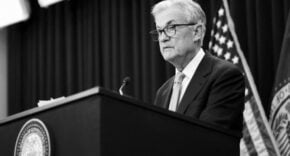AEI Senior Fellow and the chief economist of the China Beige Book Derek Scissors joins Yahoo Finance Live to discuss China Foreign Minister Qin Gang’s warning to the U.S., rising U.S.-China tensions, and the outlook for imports and exports.
Video Transcript
RACHELLE AKUFFO: Let’s bring in Derek Scissors. He’s a member of the US-China Economic and Security Review Commission and the chief economist of the China Beige Book. Good to see you, Derek. So talk about this dynamic that we have right now. Obviously, it’s something of a combative relationship. The relationship seems to have gone, at least since Biden came in, almost nonexistent since there wasn’t really a strong China policy. Where are things now?
DEREK SCISSORS: Well, there certainly– I agree with the report you just had that there’s a lot of rhetoric clash between the US and China. The Chinese warning just now was to try to alarm people in the Biden administration in the US that things are out of control. They’re not out of control. The US has passed, for example, interim rules, not the final rules, controlling US semiconductor exports to China. The idea that if the US doesn’t export advanced semiconductors to China, that this is some sort of horrible relationship break is, of course, ridiculous. That’s not an obligation.
What we’re having on the US side is a lot of talk. The bipartisan consensus is to talk tough on China, but very little action. There’s a lot of US money flowing to China. As you said, the trade relationship remains very strong. So maybe rhetoric will lead to a different relationship, but right now, it’s almost all talk and very little action behind it.
RACHELLE AKUFFO: And they do seem to be talking through policy versus talking directly with each other. Obviously, weren’t able to have that face-to-face meeting with President Xi. But as we’ve just come off the two sessions, I mean, you have this 5% growth target that China has set. What does this really mean in terms of China’s resilience? And it’s really this hope for a reopening benefiting the US economy and others.
DEREK SCISSORS: Well, it’s not clear to me why people think that China’s reopening will benefit the US. It’ll benefit say, some commodity suppliers to China. China is the world’s biggest demander of commodities, energy, metals, food– you name it. More Chinese production usually displaces American production.
So the nature of the reopening matters. Is it going to be a consumer-led rebound this year? There will be a rebound this year of some sort. Is it going to be consumer led? The February trade data that we just saw says no. Imports are very weak. It’s early, but it isn’t the case. China will do better this year economically than last year. How it does better is important for whether it benefits the US. We could easily see a stronger Chinese economy that really doesn’t offer any benefit to the United States.
RACHELLE AKUFFO: So then as we look at this relationship, then, and we look at the possibility of what’s been called, as China tries to portray it, a US conflict, what exactly would that actually look like in reality, given how interconnected these economies are?
DEREK SCISSORS: Well, again, the Chinese are acting like the United States has some obligation to have enormous amounts of trade with them and send them money to support their advanced technology and give them the technology directly through exports. What we could see this year is what has been talked about a lot– a step towards decoupling. So far, we have decoupling talk in both countries, not really actually have decoupling if you look at the numbers.
So we’re not looking at it– no one’s headed, at this point, towards any sort of real conflict even economically, much less militarily, but we could get more separation between the two. I mean, there are reports from American business that they don’t trust Xi Jinping’s domestic economic policies for good reason. He’s not very friendly to the private sector.
So if American businesses choose to do less business with China, you’re going to get those very intertwined economies you mentioned separating. But that’s not conflict. Decoupling is not a fight. It’s just a separation. And these economies, in the any reasonable case, will still be very intertwined at the end of the year.
RACHELLE AKUFFO: And we know that, obviously, COVID had a lot of companies worried about supply chains diversifying away from China. But as we see more of these allegiances between the Brexit nations, as you see China perhaps having more allegiances to India and to Russia as well, what does this mean for US companies sort of stuck in the middle here?
DEREK SCISSORS: Well, I don’t– China-India relations are not too great. China-Russia relations are obviously pretty good, unfortunately. US companies do have some hard choices. I mean, I have long been an advocate for US partial decoupling from China. But I don’t mean to say no one should think– and I don’t think anyone does– that that will be easy.
You can’t just all move to Vietnam. Vietnam isn’t big enough. You can’t all move to India because India doesn’t have the right policies, really, in many situations. You can’t all move to Mexico. Mexico’s already pretty crowded with companies. So US companies face a tradeoff here where they don’t trust the policy environment in China. They don’t trust US-China relations in the long-term. But they don’t necessarily have great alternatives, which means if there is a decoupling, it’s going to be slow.
RACHELLE AKUFFO: And so then as we have that outlook here for China’s economy, obviously, some tempered expectations with that 5% growth target, but what are your expectations for the year? What does this China reopening story actually look like in reality?
DEREK SCISSORS: Well, I don’t think 5– people are misinterpreting the 5% growth target. An outgoing government, which is what we have now, Li Keqiang giving way to Li Qiang– I mean, it sounds like they’re almost the same person, but they’re definitely not. In terms of being number two, as we expect, the outgoing government is not going to set a target that the new government would struggle to reach and make them look bad. They’re not going to say, oh, I think we can hit 6.5% GDP growth, and then the new government comes in and doesn’t hit it. They’re going to set a target that China knows it will make, barring very strange circumstances, like a terrible outbreak of COVID or something along those lines.
So people shouldn’t read that China thinks it’s going to grow at 5.1%, 5.2%. They expect GDP growth in the upper 5’s, maybe even over 6, and that’s on a normal case. Better cases could be higher. The 5% is being misinterpreted as negative. Having said that, the start of the year, China is reporting some good data, some bad data. The start of the year is actually weak on the ground. It’s going to take a while.
And again, the question is, is this going to be a consumer led rebound where the Chinese government can stand aside and not bother with stimulus because they’re already overleveraged, and you actually have revenge spending that people want, and you have a healthy rebound, or are consumers frightened? They’ve been battered in China for three years, even longer than American consumers were battered by COVID. And they don’t spend, and then China has to inject more money, leverage more, and you get a rebound, but it’s much less healthy. We don’t know that yet. We won’t really know how Chinese consumers are responding until April or so.
RACHELLE AKUFFO: And in terms of where the investment money is then flowing in China with that in mind then, what are you seeing?
DEREK SCISSORS: Well, people are hesitant. They’re looking for signals out of the current National People’s Congress that is occurring in China, that China will not just say, oh, we welcome foreign investment, but they’ll actually act like they welcome foreign investment. And there are some counter signals to that. There are some language aimed at the private sector that isn’t very encouraging or private sector activity. We recently had yet another Chinese private sector CEO disappear, who is now, quote, “cooperating with authorities,” unquote, as if he had any choice in the matter.
So people are looking at the NPC and the policies of National People’s Congress and the policies that will come out of it this month and next month for a cue. Foreign business would like to take advantage of a stronger Chinese economy this year, but they’re not going to do that if they’re being told, we only want your money for the short-term before we drive you out, because we really don’t like private sector competition. So they’re weighing– there’s going to be a short-term macroeconomic rebound against what is the National People’s Congress going to tell us. I would say so far, the National People’s Congress has been discouraging, but that’s going to depend on the sector that you’re in.
RACHELLE AKUFFO: We’ll certainly be keeping an eye on that space, and especially once those meetings wrap as well. China Beige Book chief economist Derek Scissors, thank you for joining me this morning.
Source: https://finance.yahoo.com/video/china-acting-u-obligation-enormous-170242022.html










